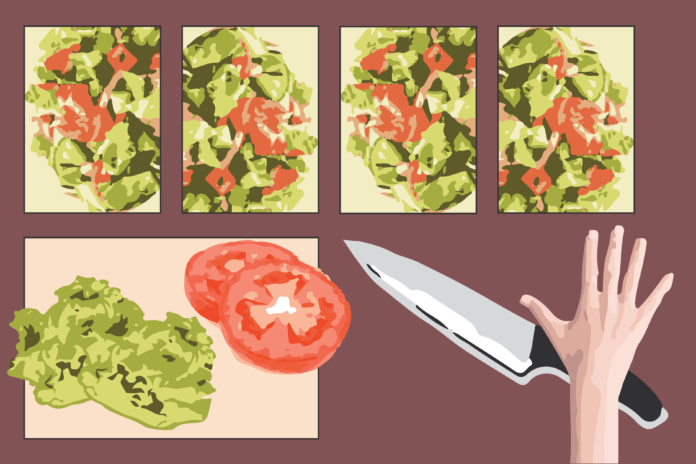Students and a professor provide tips for meal planning for college students on a budget
By ELLIE LEE — city@theaggie.org
Dr. Debbie Fetter encouraged college students to make healthy changes to eating patterns, activity habits and overall lifestyle, which can all result in improved health outcomes in middle and old age. She emphasized that students nourishing and resting their bodies may set them up for success. They may be able to better tackle everyday challenges that college students face.
“Improving your health during college can create community and an outlet, as well as improve your health,” Fetter said. “Plus, certain foods have been shown to help with brain development and integrity.”
Fetter says body size and weight is often emphasized when it comes to the topic of nutrition, but she feels we need to reevaluate how these subjects are addressed.
“All of us are built differently, and I hope that as a society overall we can embrace size diversity so it’s more so like figuring out different factors associated with one’s body composition that can lead to increased risk for different diseases depending on that individual,” Fetter said.
To address weight fluctuations, she recommends identifying patterns. For example, in the dining commons where students are free to eat food from a variety of stations, she recommends taking about 15 minutes after each portion of food to determine if one is still hungry or already full.
“Oftentimes there’s a delay between registering that we’re no longer hungry versus still being hungry,” Fetter said. “If you’re hungry, then definitely eat.”
Student Nutrition Association (SNA) President and fourth-year clinical nutrition student Hannah Parducho said she struggled with body image while being an athlete. She swam for most of her childhood and has now started weightlifting regularly in the gym.
“Those thoughts come and go,” Parducho said. “It takes work to shift those thoughts but it’s really rewarding. Life is more about what you can do and not how you look; I find strength and courage in being strong. As a weightlifter, I try to feed myself and do movements that I enjoy that will help me become a better weightlifter.”
Katrina Zara, a third-year psychology student and mental health advocate who posts blogs on www.plantifullylivin.com and is an active board member of My State of Mind at UC Davis, says she also struggled with body image but has coped with these struggles by focusing on her internal self.
“There’s no one in this world that matters as much as yourself. You are the main character,” Zara said. “The body image doesn’t matter, as long as fulfillment of the internal self is present. If you focus on feeling good, the looking good will come.”
Zara said that mental health connects to nutrition.
“Because of the deficiency of nutrients, it’s harder for your brain to flow better,” Zara said. “This ties into exercise; the greater blood flow that your body has, the more neural connections it can make so the faster your brain can process things.”
Zara encourages students to attend a virtual mental health advocacy conference on Nov. 13 in partnership with the United Nations Millennium Fellows, called Mind Over Matter. Speakers include youth activists from a variety of areas, including representatives of UC Davis mental health organizations and mental health professionals. The discussion will contain three themes: Educating on Mental Illness and How to Be an Ally, Defining and Accessing Therapy and Caring for Your Mental Health and Well-Being.
Fetter recommended focusing on one high quality protein for fullness and to promote satiety. She approved of the concept of making half your plate fruits and veggies, as it is a simple way to visualize meals. She discussed choosing a whole grain option when possible and the recommendation of making half your grains whole grains.
“The secret to my recipes are the simplest recipes,” Fetter said.
Parducho discussed her recommendation on how students should plan meals.
“First, take an inventory of what you have,” Parducho said. “Second, plan how much you anticipate you are going to eat, and then work backwards from there, figuring out the amounts you need to buy.”
To ensure an affordable budget of groceries, Parducho emphasized making a list before going to the store. She organizes the list by sections, like produce and nonperishables, and uses a checkbox function.
Written by: Ellie Lee — city@theaggie.org





